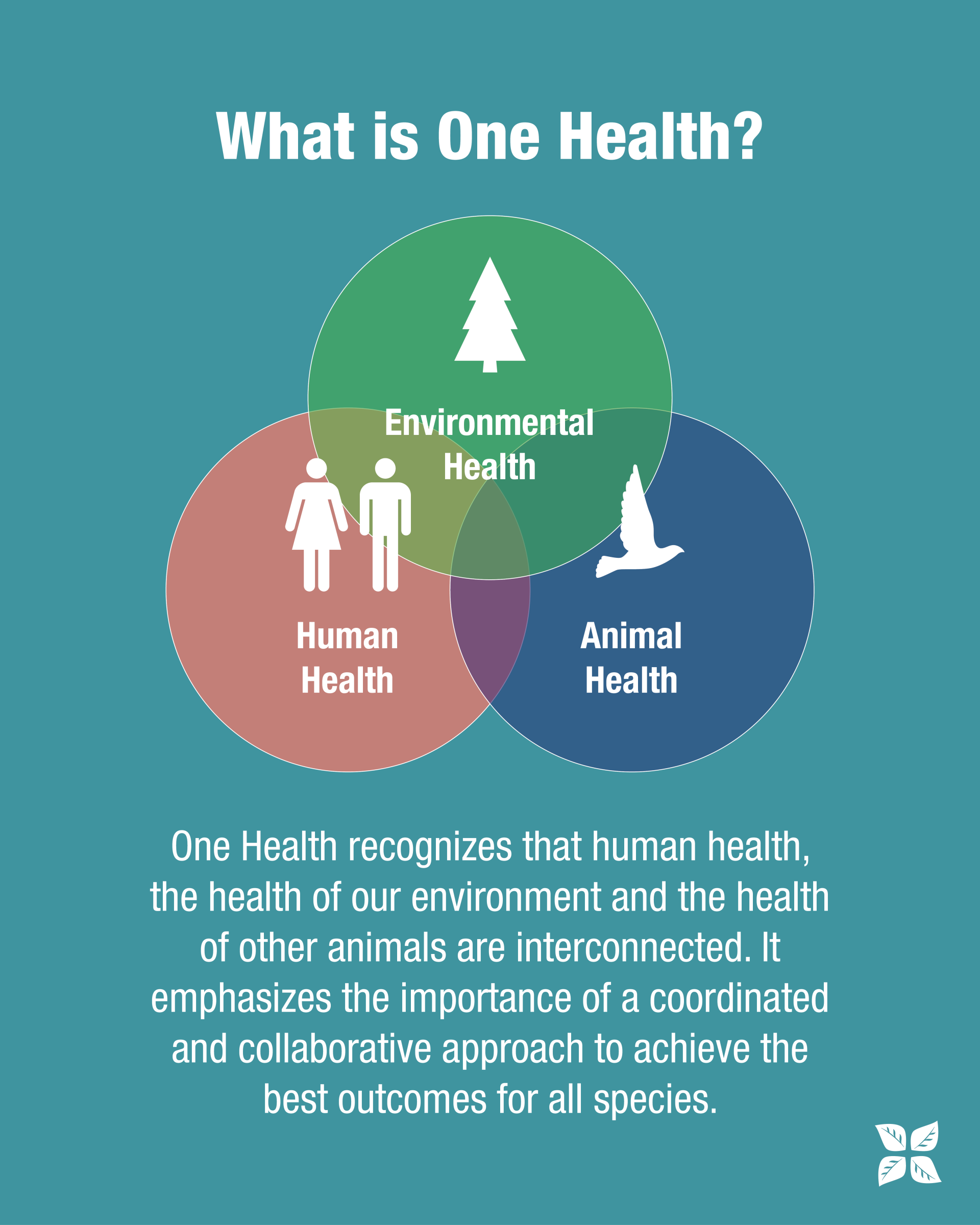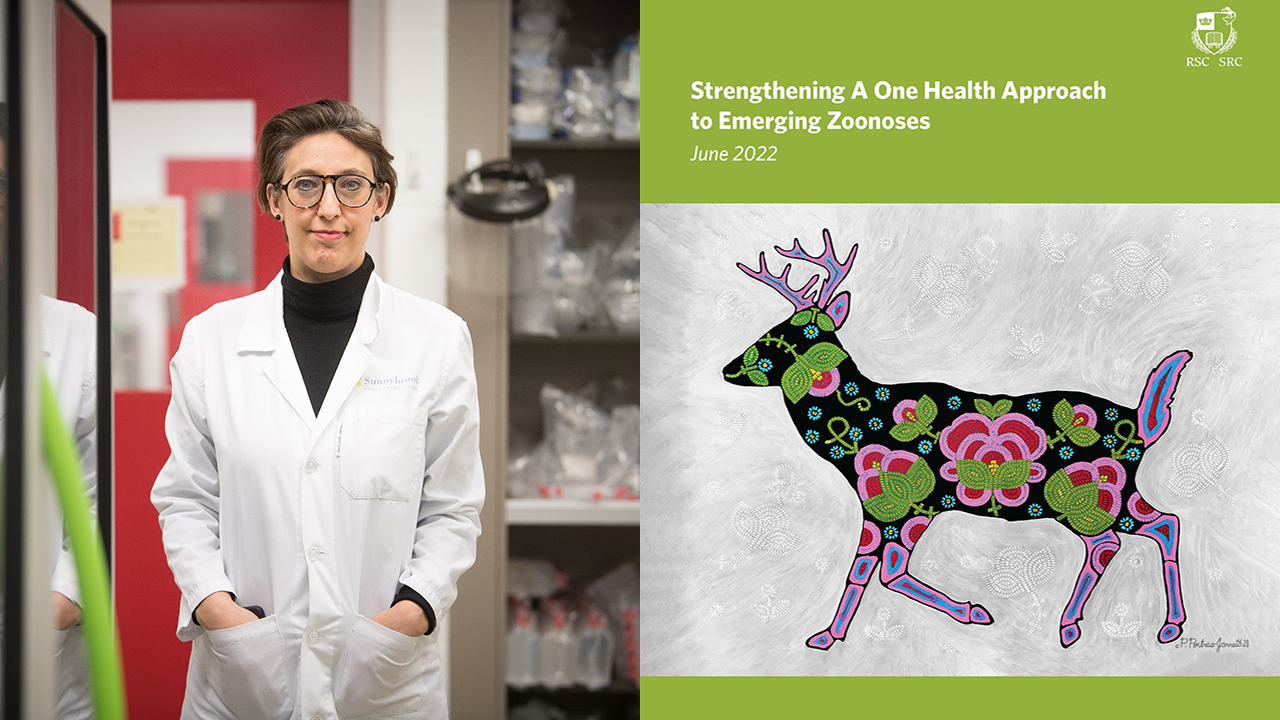Researchers call for a One Health approach to tackle zoonoses
A new report from the Royal Society of Canada (RSC) is highlighting the need for a deeper understanding of the intersecting biological, ecological and societal factors contributing to the emergence, spread and impact of zoonotic diseases. Zoonoses are pathogens transmitted between different species of animals (including humans). Recent examples include SARS-CoV-2, monkeypox and avian influenza viruses.
The policy briefing, released last week, was developed by a working group led by Dr. Samira Mubareka, virologist and infectious diseases physician at Sunnybrook Health Sciences Centre and an associate professor in the Department of Laboratory Medicine and Pathobiology at the University of Toronto. It urges Canada to adopt a One Health approach to anticipate and prevent future potential zoonotic disease outbreaks, and to mitigate the impact of existing zoonoses.
“The COVID-19 pandemic has shown us the importance of understanding the drivers of pathogen spillover from one species to another,” says Dr. Mubareka. “One Health recognizes that human health and the health of other animals are interconnected and emphasizes the importance of a coordinated and collaborative approach to achieve the best outcomes for all species.”

The report outlines the urgent need for a One Health approach, in the context of emerging and reemerging challenges of the COVID-19 pandemic and ongoing outbreaks of avian influenza within Canada. The authors share a number of recommendations for national policymakers including improved One Health governance, expanded pathogen surveillance and biomonitoring, addressing existing health inequities, and One Health-focused education and research to ultimately enhance global health and security.
The policy briefing was written by a 15-member working group within the RSC Task Force on COVID-19, which convened in spring 2020 and is chaired by Dr. Mubareka. The group consists of national and international experts in fields including epidemiology, public health, virology, ecology, social sciences, biosecurity, and veterinary and human medicine, as well as Indigenous scholars.
“We’re fortunate to have a wonderful group of academic, government and community partners working together on this project at a critical time,” says Dr. Mubareka.
“As we emerge from the pandemic, it’s important to remind ourselves of the predisposing factors that got us here. This is a critical opportunity to address these complex factors to ensure wellness for all.”
Read the report: Strengthening a One Health Approach to Emerging Zoonoses.



